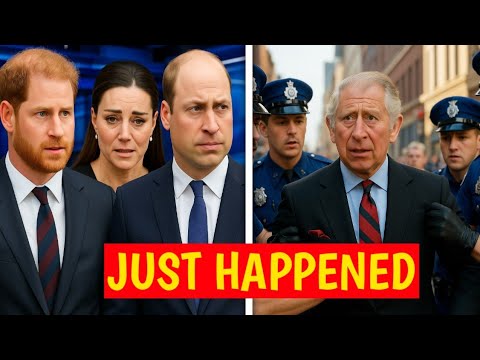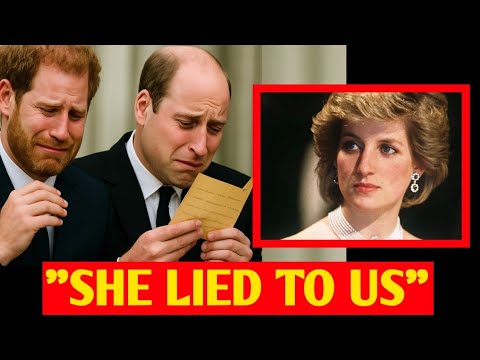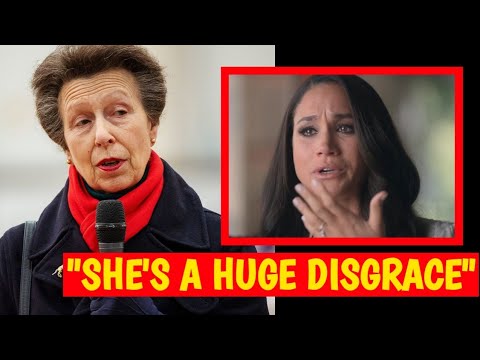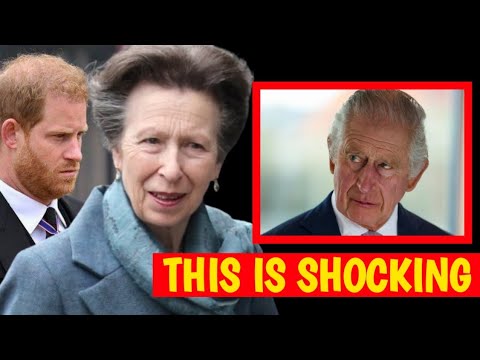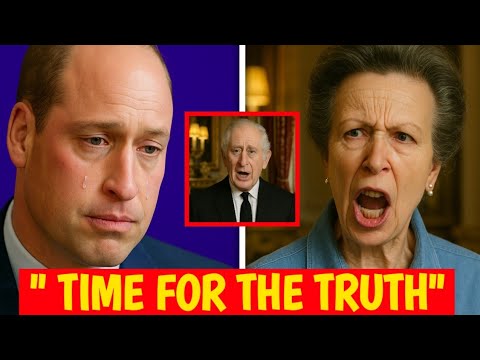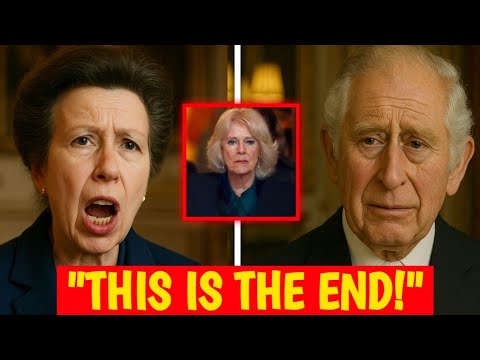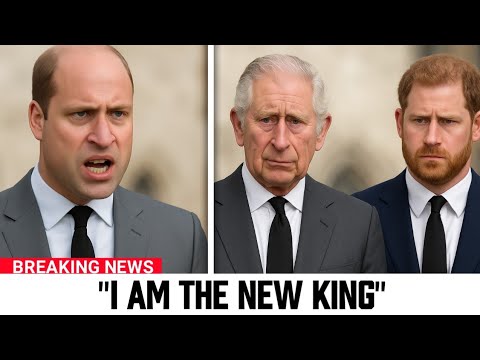
We laid Diana to rest—but you laid all of us to rest.With just seven words, Prince William reportedly broke his silence at King Charles III’s coronation, and the effect was seismic. The moment wasn’t caught on camera, nor heard by the gathered crowd. It unfolded quietly, away from the pageantry, but those present say it landed like a thunderclap. According to eyewitnesses, William’s words were not loud, but their meaning reverberated through the heart of the monarchy. The pain behind them was unmistakable—decades of grief, anger, and betrayal condensed into a single, cutting sentence. A private whisper between two brothers—one crowned in honor, the other cloaked in controversy—has now ignited a storm that’s sending shockwaves through the House of Windsor.
Why did William say what he did? What does this moment tell us about the deep fracture between the brothers? And why does the shadow of Princess Diana loom so heavily over this generation of royals? What follows is a story that peels back the veil on a monarchy carefully curated for public admiration—and reveals a family breaking apart behind the scenes.
Outside Westminster Abbey, excitement buzzed like electricity in the air. Reporters jockeyed for position, lenses trained on the stone-carved splendor of the ancient church that had crowned monarchs for centuries. But inside, beneath the ceremonial gold and crimson, something colder simmered. The coronation was a celebration of legacy and continuity—but also a stage for the quiet collapse of familial bonds. The world had gathered to watch Charles ascend the throne, but in the shadows of that historic moment, the real drama was unfolding between his sons.
The coronation was intended to unify—to symbolize stability as the royal family entered a new era. Instead, it became a study in contrast. The divide between William and Harry—once the image of brotherly resilience—was now too wide to ignore. When the cameras briefly captured Harry’s solo arrival at the abbey, whispers swirled: his determined gaze, the way he walked past his family without acknowledgment, his conspicuous placement several rows back from senior royals, and his notable absence from the palace balcony after the ceremony. But none of that was the most talked-about moment. The words that truly struck a nerve happened off-camera. Seven words, softly spoken, left a lasting wound: We buried Diana, but you buried us.
According to those present, Prince William spoke these words as Harry passed him in the aisle. He was standing beside his wife, Catherine, and though the words weren’t audible to the audience or captured by the press, witnesses describe them as cool, precise, and devastating. Not shouted. Not bitterly spat. Just delivered with painful clarity. The phrase, simple but brutal, encapsulated not just William’s grief over Diana’s death, but the deeper sorrow over the family’s deterioration.
This coronation wasn’t just a national event. For the royals, it was personal—a culmination of five years of headlines, interviews, and strained silences. Harry and Meghan’s departure from royal duties, the explosive Oprah interview, the polarizing Netflix documentary, and the controversial revelations in Harry’s memoir Spare had all added fuel to the fire. Each public revelation further strained an already fragile relationship. William’s words, then, felt less like a spontaneous emotional outburst and more like a verdict—one that had been quietly forming in his heart for years.
To understand the pain behind William’s remark, we must revisit their shared trauma: the death of their mother, Princess Diana, in 1997. William and Harry walked together behind her coffin, the world grieving alongside them. It was a moment that defined their childhood and, in many ways, their adult paths. William, the elder, immersed himself in duty, embracing the burden of monarchy. Harry, younger and less bound by tradition, began to question the very institution that had shaped—and in his view, stifled—them both. Their grief took them in opposite directions. What once connected them—shared loss—eventually became the wedge that drove them apart.
William’s statement wasn’t merely a critique of Harry’s decisions; it was a lament for what had been lost. It suggested that in choosing a different life, Harry had severed something essential—not just protocol, but their shared identity as brothers. The phrase you buried us implies more than abandonment; it suggests betrayal, and perhaps even an irreparable break. And yet, it was said not during a televised interview or through a press release, but in a hushed moment, during the most sacred and symbolic ceremony in British royal tradition. That subtlety is what makes it all the more profound.
The timing of the statement is striking. Coronations are meant to be the most unifying of royal occasions, celebrating legacy, order, and national pride. But for William, this day was also a reckoning. For Harry, perhaps it was the final proof that his place in the family had become little more than ceremonial. He reportedly arrived alone, kept his distance, and left within hours—absent from all celebrations and balcony appearances. He had become, as some commentators noted, a royal ghost: present in body, but no longer part of the picture.
Insiders suggest that the weeks leading up to the coronation were fraught with tension. William was said to have been adamant about knowing exactly how and when Harry would attend. Where he would sit. How he would be protected. Every detail had to be controlled, as if the palace were bracing for a bombshell. Harry, in turn, maintained distance, perhaps sensing that whatever peace might have once been possible was now out of reach. William’s seven words were likely the result of years of suppressed frustration, triggered by the culmination of media spectacles, public criticism, and private grievances. For him, the coronation marked the last straw.
What makes this moment all the more heartbreaking is the setting. This was a day intended to honor their father’s legacy, a sacred chapter in royal history. But rather than finding common ground, the brothers’ animosity overshadowed the occasion. The irony is striking: a coronation meant to celebrate unity became the stage for final division. William’s words underlined the true inheritance of the House of Windsor—not just a crown or a kingdom, but a legacy of unresolved pain. And in his view, Harry had tainted that legacy beyond repair.
To truly comprehend the emotional weight of William’s whispered remark, we must peel back its layers. We buried Diana is more than a remembrance—it’s a shared trauma. A moment of unity frozen in time. But you buried us is not just accusation—it’s a declaration of grief for the bond they once had. The transformation from allies to strangers wasn’t caused by a single event, but by a series of fractures, too many to ignore.
What remains now is the reality that even among gold thrones and ancient traditions, royals are still human—capable of heartbreak, resentment, and raw emotional truths. Seven words may not have been caught by microphones, but their echo now rings louder than any official speech. For many, that private exchange will be remembered long after the crown was placed on Charles’s head.
In that moment, the monarchy may have gained a new king, but it also lost something else—something quieter, but no less significant. The dream of reconciliation. The illusion of unity. The last thread of brotherhood.
